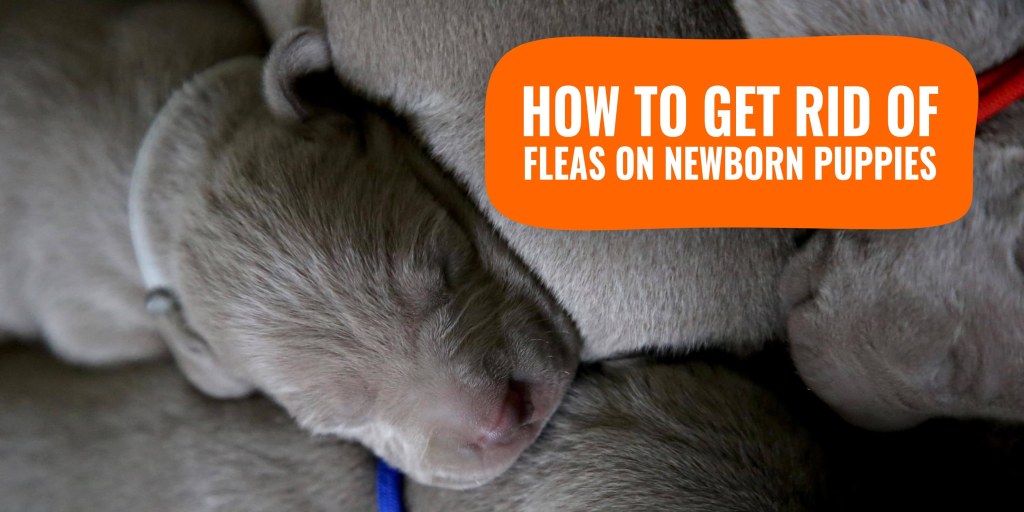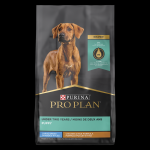Eliminating Fleas On Newborn Puppies: A Must-Read Guide For Immediate Action!
Fleas on Newborn Puppies
Introduction
Dear Puppies Lover,
Welcome to our article about fleas on newborn puppies. As a dog lover, it is important to be informed about the various challenges that puppies face, including the presence of fleas. In this article, we will provide you with comprehensive information about fleas on newborn puppies, their effects, and how to prevent and treat them. Read on to ensure the health and well-being of your adorable furry friends.
2 Picture Gallery: Eliminating Fleas On Newborn Puppies: A Must-Read Guide For Immediate Action!


Table of Contents:
What are fleas?
Who is affected by fleas?
When do fleas appear on newborn puppies?
Where do fleas come from?
Why are fleas harmful to newborn puppies?
How to prevent fleas on newborn puppies?
Advantages and disadvantages of treating fleas on newborn puppies
FAQs
Conclusion
Final Remarks
What are fleas?

Image Source: demandstudios.com
Fleas are small, wingless insects that feed on the blood of animals. They are known for their jumping ability and are commonly found in warm and humid environments. Fleas go through a life cycle consisting of eggs, larvae, pupae, and adult stages. Adult fleas typically measure about 2-3 mm in length and have a dark reddish-brown color.
🔍 Fleas are parasitic pests that can cause significant discomfort and health issues for newborn puppies.
Newborn puppies are highly vulnerable to fleas and their bites due to their weak immune systems. Therefore, it is crucial to take preventive measures and address any flea infestations promptly to ensure the well-being of the puppies.
Who is affected by fleas?
Newborn puppies are particularly susceptible to flea infestations. Their small size and underdeveloped immune systems make them easy targets for fleas. Additionally, mother dogs can also become infested with fleas, which can then be transferred to their puppies during nursing or through close contact.

Image Source: breedingbusiness.com
🔍 Fleas can affect both the puppies and their mother, leading to discomfort, itching, and potential health complications.
This is why it is important to regularly check newborn puppies and their mother for any signs of fleas and take appropriate measures to prevent and treat infestations.
When do fleas appear on newborn puppies?
Fleas can appear on newborn puppies as early as a few days after birth. While fleas prefer to infest adult dogs, they can also target vulnerable newborns. This can occur if the mother dog is infested with fleas or if the puppies come into contact with fleas in their environment.
🔍 Fleas can appear on newborn puppies within days after birth, potentially causing discomfort and health issues.
It is crucial to monitor newborn puppies closely and take immediate action at the first sign of flea infestation, such as excessive scratching or visible presence of fleas.
Where do fleas come from?
Fleas can come from various sources and environments. They can be found outdoors in areas frequented by other animals, such as parks or gardens. Additionally, fleas can also be brought into homes by infested animals or through contact with infested bedding, furniture, or carpets.
🔍 Fleas can come from outdoor environments or be brought into homes through infested animals or objects.
To prevent flea infestations, it is important to keep the living environment clean and regularly inspect and treat pets for fleas. This includes washing bedding, vacuuming carpets, and using appropriate flea treatments.
Why are fleas harmful to newborn puppies?
Fleas can cause various health issues for newborn puppies. Their bites can lead to intense itching, irritation, and inflammation of the skin. Puppies may develop allergic reactions to flea saliva, resulting in dermatitis and hair loss. Additionally, fleas can transmit parasites, such as tapeworms, which can further compromise the health of the puppies.
🔍 Fleas can cause itching, irritation, dermatitis, hair loss, and transmit parasites to newborn puppies, posing significant health risks.
It is crucial to address flea infestations promptly to prevent these health complications and ensure the well-being of newborn puppies.
How to prevent fleas on newborn puppies?
Preventing fleas on newborn puppies requires a multi-faceted approach. Here are some essential preventive measures:
Regularly groom and inspect the mother dog for fleas.
Keep the living environment clean and vacuum regularly.
Wash bedding, blankets, and toys in hot water to kill any fleas or eggs.
Use flea preventive products recommended by veterinarians.
Avoid exposure to infested animals and environments.
Consult with a veterinarian for appropriate flea treatments for newborn puppies.
Monitor puppies for any signs of fleas and seek immediate treatment if infestation occurs.
🔍 Preventive measures are crucial to protect newborn puppies from fleas and potential health risks. Consult with a veterinarian for personalized advice tailored to your specific situation.
Advantages and Disadvantages of Treating Fleas on Newborn Puppies
When it comes to treating fleas on newborn puppies, there are both advantages and disadvantages to consider:
Advantages:
Relieves puppies from discomfort and itching caused by fleas.
Prevents the spread of fleas to other pets and humans.
Reduces the risk of allergic reactions and dermatitis.
Disadvantages:
Potential side effects or sensitivities to flea treatment products.
Cost of flea treatment products and veterinary consultations.
Requires regular and consistent application of preventive measures.
🔍 Treating fleas on newborn puppies offers several advantages, but it is important to weigh them against the potential disadvantages and consult with a veterinarian for the best course of action.
FAQs (Frequently Asked Questions)
Q1: Can I use adult flea products on newborn puppies?
A1: No, it is not recommended to use adult flea products on newborn puppies as they can be too harsh and potentially harmful. Consult with a veterinarian for safe and appropriate flea treatments for newborn puppies.
Q2: Can newborn puppies get infested with fleas if their mother doesn’t have fleas?
A2: While it is less likely, newborn puppies can still get infested with fleas from their environment or other infested animals. It is important to take preventive measures even if the mother dog is flea-free.
Q3: Can fleas transmit diseases to newborn puppies?
A3: Fleas can transmit parasites, such as tapeworms, to newborn puppies, which can lead to health issues. It is crucial to address flea infestations promptly to prevent the transmission of diseases.
Q4: Can I use natural remedies to treat fleas on newborn puppies?
A4: While some natural remedies may help repel fleas, it is important to consult with a veterinarian for safe and effective treatments for newborn puppies. Natural remedies alone may not provide sufficient protection.
Q5: When can I start using flea preventive products on newborn puppies?
A5: It is recommended to consult with a veterinarian to determine the appropriate age to start using flea preventive products on newborn puppies. They will consider the specific circumstances and provide personalized advice.
Conclusion
In conclusion, fleas on newborn puppies can pose significant health risks and discomfort. It is crucial for puppies lovers to be aware of the potential effects of fleas and take proactive measures to prevent and treat infestations. Regular grooming, maintaining a clean living environment, and consulting with a veterinarian for appropriate flea treatments are essential steps in ensuring the well-being of newborn puppies. By staying informed and taking preventive actions, you can protect your adorable furry friends from the harmful effects of fleas.
Final Remarks
Dear Puppies Lover,
Remember, the information provided in this article is intended for educational purposes only and should not substitute professional veterinary advice. If you have any concerns or questions about fleas on newborn puppies, consult with a veterinarian for personalized guidance and treatment options. Your puppies’ health and well-being should always be a top priority.
Take care of your newborn puppies and keep them wagging their tails happily!
This post topic: Puppies



